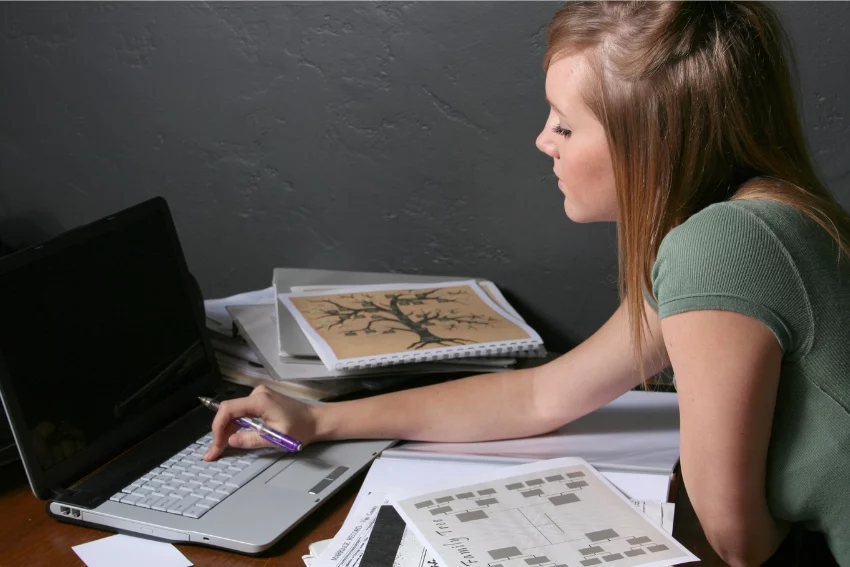Table of Contents
Are you preparing for your GCSE French exams and wondering how to get that coveted grade 9? One of the most effective ways is through practising GCSE French speaking past papers to master the speaking component and understand what examiners expect. Whether you’re a language enthusiast or someone who struggles with verb conjugation, this blog post is for you. In this article, we’ll share practical tips and strategies to help you boost your French language skills and master your GCSE subjects. Whether you’re a student, parent, or teacher, you’ll find useful insights to help you support your language learning journey. So, let’s dive into the world of the French language and culture and discover how to achieve your full potential!
Understand the Exam Format and Assessment Criteria
The first step to achieving a 9 in GCSE French is to understand the exam format and assessment criteria. This will help you to prepare effectively and maximise your marks on the day of the exam.
Exam Format
The GCSE French exam consists of four components: listening, reading, writing, and speaking. Each component is weighted equally, with 25% of the final grade allocated to each.
The listening component lasts approximately 35 minutes and consists of a variety of different types of questions, such as multiple choice, matching, and short answers.
The GCSE French reading practice component lasts approximately 45 minutes and also consists of a variety of different types of questions, such as multiple choice, matching, and short answers.
The writing component lasts approximately 1 hour and 15 minutes and consists of two tasks: a short writing task (such as a postcard or email) and a longer essay.
The speaking component is conducted in pairs or small groups and lasts approximately 7-9 minutes per student. It consists of three parts: a role-play task, a photo card task, and a general conversation.
Knowing how to do speaking tasks from GCSE French speaking past papers helps you see what kinds of conversation, photo card, or role-play extracts are typical, which helps you prepare better.
GCSE French assessment criteria

In order to achieve a high grade in GCSE French, it is important to understand the assessment criteria used by the examiners. The assessment criteria are divided into four categories:
- Listening and Reading: Understanding and responding to different types of spoken and written language
- Writing: Communicating effectively in writing for a variety of purposes and audiences
- Speaking: Communicating effectively in speech for a variety of purposes and audiences
- Grammar: Using accurate grammar, vocabulary and punctuation
Each category is weighted equally, with 25% of the final grade allocated to each. Within each category, there are different levels of achievement, ranging from Level 1 (basic) to Level 9 (advanced).
The examiners will be looking for evidence that you have met the criteria at a Level 5 or above in each category. This means that you need to demonstrate a good understanding of the language and use it accurately and effectively in a range of contexts.
Develop Strong Language Skills
To achieve a high grade in GCSE French, it’s essential to have strong language skills. Here are some tips to help you develop your French language skills:
- Practice regularly. Regular practice is key to improving your French skills. Try to speak French as much as possible and make use of any opportunities you have to practice, such as speaking with native French speakers or participating in a French language exchange program. You can also practice learning French using AI
- Expand your vocabulary. Building a strong French vocabulary is crucial for success in the exam. Try to learn new words every day and practice using them in context. You can use flashcards or online vocabulary tools to help you.
- Improve your grammar. Having a solid understanding of French grammar is essential for success in the exam. Try to identify your weaknesses and focus on improving them. You can use online grammar resources or seek the help of a French tutor to improve your grammar.
- Work on your pronunciation. Good pronunciation is crucial for communicating effectively in French. Practice your pronunciation regularly by listening to native French speakers and repeating after them. You can also use online resources or apps that focus on French pronunciation.
- Use useful resources and tools. If you’re determined enough, even Netflix can be a good study resource! Also, there are plenty of useful resources and tools available to help you improve your French skills. For example, language learning apps like Duolingo and Babbel can be a great way to practice French on the go. French grammar books, French dictionaries, and French language websites can also be helpful resources to aid your learning. If you need more fun apps, you can check out the top 10 websites and top 10 youtube channels for GCSE revision.
By following these tips and practicing your French skills regularly, you can develop strong language skills and boost your chances of achieving a high grade in GCSE French.
Learn the Cultural Context
Learning a language goes beyond just memorising vocabulary and grammar rules. To truly master French, you need to immerse yourself in the culture that shapes the language. Understanding the cultural context of French will not only help you become a better communicator, but it will also give you a deeper appreciation of the language and its speakers.
French culture is rich and diverse, with a long history of art, music, literature, and gastronomy. It’s important to explore and learn about these aspects of the culture, as they can help you understand the nuances of the language and the people who speak it. For example, reading classic French literature, such as Les Misérables by Victor Hugo or Madame Bovary by Gustave Flaubert, can give you insight into the values and beliefs of French society.

To immerse yourself in French culture, there are many resources available. Watching French films, listening to French music, and reading French newspapers and magazines are great ways to expose yourself to the language and culture. You can also participate in cultural events in your community, such as French festivals or cooking classes.
By understanding the cultural context of the French language, you’ll be able to communicate more effectively and appreciate the language on a deeper level.
Practice Past Papers
One of the best ways to prepare for the GCSE French exam is to practice past papers. This will help you to become familiar with the exam format and the types of questions you can expect to see on test day. Practicing past papers will also help you to develop your exam technique, so you can approach the questions with more confidence.
Use GCSE French speaking past papers to practise the speaking exam component: record yourself, compare with model answers, practice both role-play and general conversation tasks.
Here are some tips on how to practice past papers effectively:
- Start with the most recent past papers. The exam format and assessment criteria may change over time, so it’s important to practice with the most up-to-date papers available.
- Practice a variety of question types. The GCSE French exam includes different types of questions, such as multiple choice, comprehension, translation, and writing. Make sure you practice all of these question types so you are prepared for anything that comes up on test day.
- Time yourself. The GCSE French exam is timed, so it’s important to practice under timed conditions. If you struggle with time management, you can attend online GCSE mocks on Edumentors, they are free!
- Review your answers. After completing a past paper, review your answers and identify any areas where you need to improve. This will help you to focus your revision and practice more effectively.
Get Feedback and Support
Improving your French skills on your own can be challenging, which is why seeking feedback and support from others is so valuable. Teachers, tutors, or classmates can provide helpful insights and point out areas where you might need more practice. If you’re finding a particular aspect of the language difficult, don’t hesitate to ask for help; guidance from others can make a real difference in your progress. And if you’re balancing your workload with easier GCSE subjects, consider using that time to strengthen areas like French, where consistent support can lead to real improvement.
One way to get feedback and support is through Edumentors’ free online GCSE mocks, which are held every week. These mocks are a great way to test your knowledge and get feedback on your performance. They can help you identify areas where you need to focus your efforts and improve your exam technique.
When seeking feedback and support, it’s important to keep an open mind and be receptive to constructive criticism. Try to take on board the advice that you’re given, and use it to set goals and make a plan for improvement. By working with others, you can gain confidence in your language skills and improve your chances of success in the GCSE French exam.
You might also like our blog on:
Conclusion
In conclusion, achieving a 9 in GCSE French requires dedication, consistent practice, and a solid understanding of the exam format and assessment criteria. By following the tips and resources discussed in this blog, you can develop strong language skills, gain a deeper understanding of French culture, and confidently tackle those exams!
Remember, learning a new language is a journey, and it’s essential to enjoy the process. Explore French culture through food, art, music, and literature. Find study buddies and language exchange partners to practice your French skills. And if you need extra help, Edumentors’ French tutors are here to support you.
With the right mindset, tools, and support, you can achieve great success in your GCSE French exam. Bonne chance!








